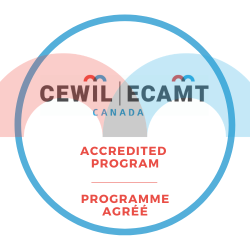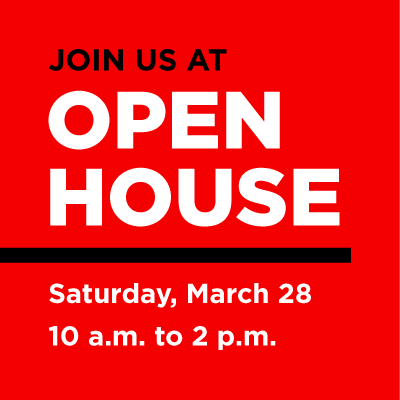Motive Power Technician - Automotive (Co-op)

*Domestic applicants include Canadian citizens, permanent residents, protected persons and Convention refugees.
Just like vehicles are changing, the way we learn to diagnose and fix vehicles also changes. This program combines in-class learning with a co-operative education component for students to apply their recently learned knowledge.
In this program you will learn about internal combustion spark-ignition engines, power trains and related modern vehicles systems. Fanshawe provides cutting-edge shops with state-of-the-art tools and diagnosing equipment so you can develop your highly specialized skills before you enter the workforce. This program takes it a step further by educating students on how to communicate effectively, diagnose and solve problems logically and undertake responsible work tasks with minimum supervision.
The Motive Power Technician (Automotive) co-op program is designed to prepare graduates with essential advanced technical, organizational, interpersonal, administrative and managerial skills required for the automotive service industry.
Graduates may also be in a favourable status if they wish to apply for our alternative Motive Power Technician (Diesel) program. Credit for those courses that bridge our diploma programs will be granted; therefore, significantly reducing the requirements for this second Ontario College Diploma.
Graduates of Fanshawe’s Motive Power Technician (Automotive) may find employment opportunities with motive power equipment manufacturers and dealers, oil companies, industrial, commercial and passenger vehicle manufacturers and dealers in servicing, parts, warranty claims, merchandising sales and insurance estimating. Graduates are also well positioned to enter the workplace in the automotive service technician trade and – depending upon Ministry of Training, Colleges and Universities (MTCU) policies – may also gain credit for completion of in-school training for that particular trade.
Did you know Fanshawe consistently ranks high in graduation employment rates among large colleges in Ontario? Here are some examples of career opportunities for graduates of Fanshawe’s Motive Power Technician (Automotive) program:
Service Advisor
Advise customers on recommended and required maintenance and repairs.
Automotive Lube Technician
Perform routine vehicle maintenance, lubricating engine parts and wheel bearings as well as replacing filters.
Automotive Technician Apprentice
Perform general automotive repairs and ensure customer satisfaction.
| Fall | Winter | Summer |
|---|---|---|
| Academic Level 1 | Academic Level 2 | Co-op |
| Academic Level 3 | Academic Level 4 |

This program is accredited by Co-operative Education and Work Integrated Learning Canada. This accreditation represents the highest standard of achievement for co-operative education programs in Canada, and recognizes Fanshawe's commitment to excellence.
The graduate has reliably demonstrated the ability to:
Robin Taggart

Join Us for Open House
Find out if Fanshawe is the right fit for you at Open House. Explore Fanshawe's campuses, meet faculty and current students, and ask your questions about starting college.
Ontario Secondary School Diploma (OSSD), or equivalent, or a mature applicant.
Students who do not have a high school diploma may wish to consider taking the Academic and Career Entrance (ACE) grade 12 Equivalency Certificate. Alternatively, applicants may choose to do the one-year Trade Fundamentals preparatory program that provides all the admission requirements for this program.
Applicants whose first language is not English will be required to demonstrate proficiency in English by one of the following methods:
| Year 1 | ||||
| Take all of the following Mandatory Courses: | ||||
| MOTP-1050 | Engine Fundamentals Theory | 2 | ||
| This course will provide a study of the design features, materials, and operating principles of the internal combustion engine. This study will also be applied to rework, modification, and component failure analysis. | ||||
| MOTP-1051 | Engine Fundamentals Lab | 1 | ||
| This course will provide an in-depth study of the static and dynamic test procedures of the internal combustion engine. The student also learns to solve applied problems, perform laboratory experiments, write lab reports and analyze performance tests according to manufacturers' recommendations. | ||||
| MOTP-1052 | Electrical Fundamentals Theory | 4 | ||
| This course pertains to a study of the design features and operating principles of electrical systemssuch as cranking, charging, lighting, accessories systems, and electronic systems such as ignitionsystems. | ||||
| MOTP-1053 | Electrical Fundamentals Lab | 1.5 | ||
| This course will provide an in-depth study of the static and dynamic test procedures of electrical systems, such as cranking, charging, lighting, accessories systems, and electronic systems such as ignition systems. The student also learns to solve applied problems, perform laboratory experiments, write lab reports and analyze performance tests according to manufactures recommendations. | ||||
| MOTP-1054 | Power Train Fundamentals Theory | 2 | ||
| This course will provide an in-depth study of the design features and operating principles of power transmissions and drive line systems. The student will also learn to evaluate and describe problems logically. | ||||
| MOTP-1055 | Power Train Fundamentals Lab | 1 | ||
| This course will provide an in-depth study of the static and dynamic test procedures of power transmission and driveline systems. The student will also learn to evaluate system problems logically, describe and perform service repair procedures. | ||||
| MOTP-1056 | Fuel & Emission Fundamentals Theory | 3 | ||
| This course will provide a study of the design features and operating principles of selected fuel, intake, and exhaust systems as they apply to internal combustion engines and will include fuel production and system related theories. | ||||
| MOTP-1057 | Fuel & Emission Fundamentals Lab | 1.5 | ||
| This course will provide an in-depth study of the static and dynamic test procedures of selected fuel, intake, and exhaust systems as they apply to internal combustion engines. The student also learns to solve applied problems, perform laboratory experiments, write lab reports, and analyze performance tests according to manufactures' recommendations. | ||||
| MOTP-1058 | Vehicle Control Fundamentals Theory | 3 | ||
| This course will provide an in depth study of the design features and operating principles of vehicle suspension, steering and braking systems. The student will also learn to evaluate and describe system problems logically. | ||||
| MOTP-1059 | Vehicle Control Fundamentals Lab | 1.5 | ||
| This course will provide an in depth study of vehicle suspension, steering and braking systems. Students will learn to evaluate system problems logically, prescribe and effect corrective action, perform quality control comparative systems and service equipment efficiency tests, solve applied problems, perform laboratory experiments, write lab reports and analyze performance tests according to manufacturers' recommendations | ||||
| MOTP-1060 | Technical Practices Theory | 3 | ||
| This course will provide an in-depth study related to fasteners, bearings, seals, sealants, oxy-acetylene heating and cutting, electric arc and MIG welding. As related to the transportation industry students will study the fundamentals, purpose, styles, principle of operation, maintenance/testing, diagnosing, and specifications of HVAC (heating, ventilation, and air conditioning), as well as fluid power hydraulic systems. Cabs and controls systems including truck, trailer and articulating coach combinations are also part of this course study. | ||||
| MOTP-1061 | Technical Practices Lab | 1 | ||
| This course will provide an in-depth study of the applied procedures related to fasteners, bearings, seals, sealants, oxy-acetylene heating and cutting, electric arc and MIG welding, heating, ventilation and air conditioning systems. Applied procedures related to fluid power systems, cabs and controls systems and truck, trailer, and articulating coach combinations are also part of this course study. The student also learns to solve applied problems, perform laboratory experiments, write lab reports and analyze performance tests according to manufactures recommendations. | ||||
| MATH-1162 | Applied Mathematics | 3 | ||
| This course will provide students with the necessary mathematical knowledge and skills required to understand, interpret and find solutions for analytical problems in the motive power industry. | ||||
| WRIT-1039 | Reason & Writing 1-Technology | 3 | ||
| This course will introduce technology students to essential principles of reading, writing, and reasoning at the postsecondary level. Students will identify, summarize, analyze, and evaluate multiple short readings and write persuasive response essays to develop their vocabulary, comprehension, grammar, and critical thinking. | ||||
| MKTG-1047 | Marketing Principles | 3 | ||
| This course is designed to give students a basic understanding of Marketing and Promotion. The course follows the Marketing and Promotion process from inception to delivery. The student will gain knowledge of Marketing definitions, market research, segmentation, targeting, data mining, demographics, and promotion design and delivery. They will also be exposed to current and future channels of marketing delivery, and ethical decision making. At the end of this course, students will use the knowledge gained to execute and present a limited marketing campaign for a small business. | ||||
| ACAD-1007 | Skills for Success | 2 | ||
| This course provides students with the opportunity to gain insight into their personal/learning styles and to develop academic mastery. Students will practice the skills needed to be successful college students and begin to formulate meaningful career plans. Students will establish a knowledge base of campus resources that support their success and will develop and/or enhance the academic skills critical for success. | ||||
| COOP-1020 | Co-operative Education Employment Prep | 1 | ||
| This workshop will provide an overview of the Co-operative Education consultants and students' roles and responsibilities as well as the Co-operative Education Policy. It will provide students with employment preparatory skills specifically related to co-operative education work assignments and will prepare students for their work term. | ||||
[1] Total program costs are approximate and subject to change. They do not include additional fees such as the health and dental plan, bus pass, or general expenses. Learn more about ancillary and additional fees.